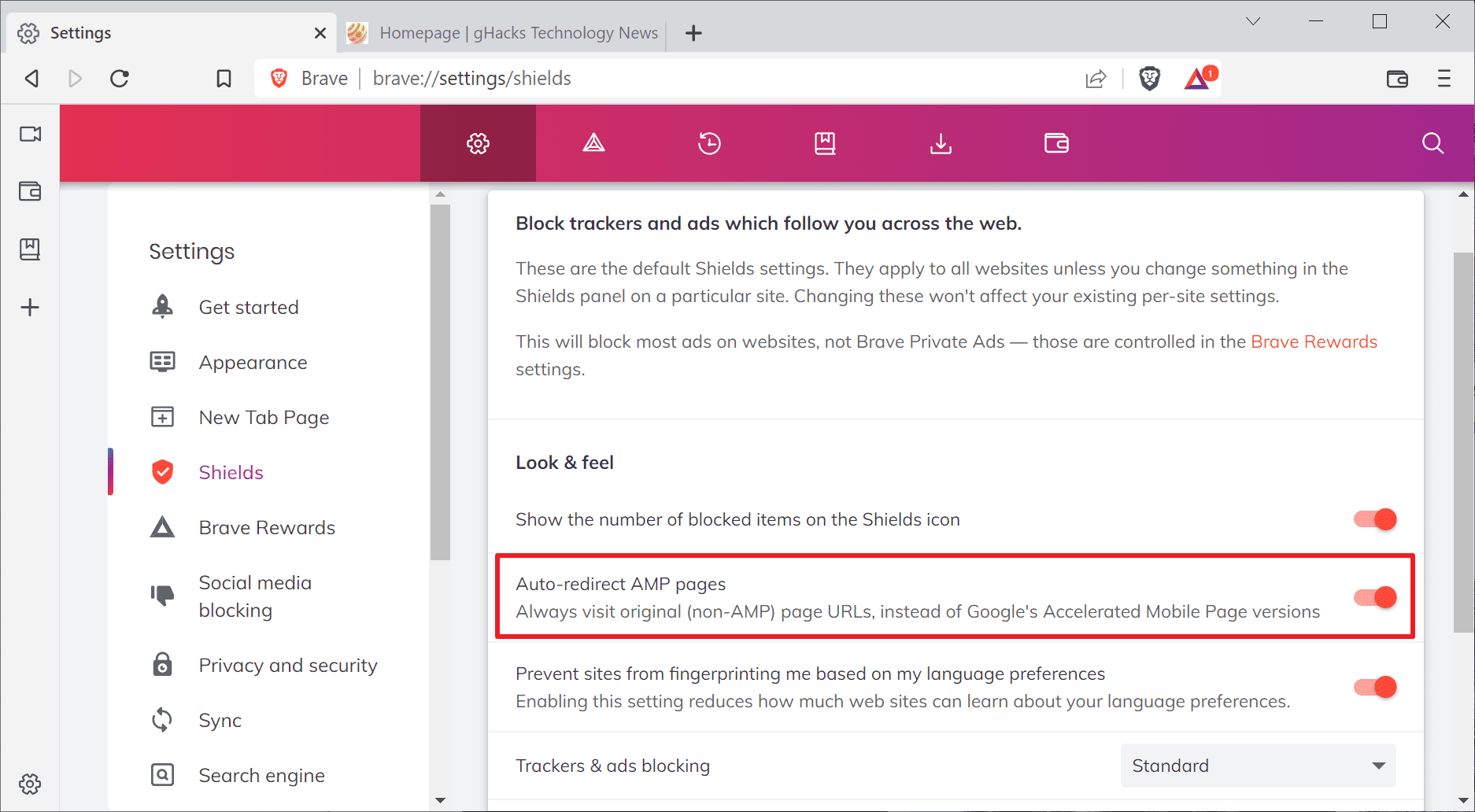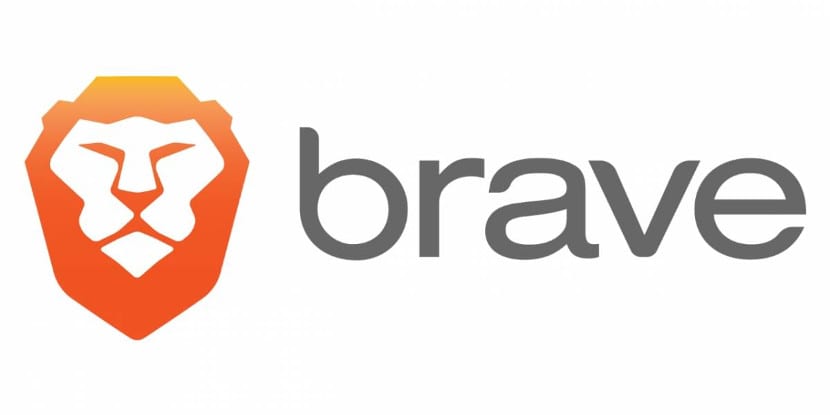Brave Browser will soon redirect webpages, that use Google's AMP technology, to the publisher website automatically. AMP, which stands for Accelerated Mobile Pages, is a technology by Google that Brave considers to be harmful to a user's privacy, security and experience.

Google claims that AMP is improving the user experience by improving the performance when loading AMP-powered webpages. The pages are served from Google servers, and Google uses preloading techniques and its own servers to serve AMP content. Pages that are loaded using AMP look as if they come from the publisher's website, but that is actually not the case.
In the past, we have highlighted several techniques to avoid AMP pages. Anti-AMP extensions are available for most browsers. Firefox users may check out Redirect AMP to HMTL, Chromium-browser users the version of the extension for their browser.
Brave Software highlights the following issues of Google's AMP technology:
- AMP is harmful to privacy -- AMP pages give Google more insights, as content is served from Google. Google penalizes publishers for not using AMP through decreased search visibility.
- AMP is bad for security -- AMP content is loaded from Google, but AMP makes it look like as if the content is coming directly from the publisher.
- AMP furthers the monopolization of the Web -- AMP content gives Google more control over the Web, using "arbitrary non-standards". Google controls the layout and technology that AMP pages use, and this benefits the company's core business, advertising.
- AMP is bad for performance and usability -- Google's claim that AMP-powered pages load faster is only true for the "median of performance". AMP pages may load slower than regular pages served from a publisher's website (which Google revealed to the DOJ).
Google is working on AMP 2.0 already, even though it is not called that by Google. The next version uses Signed Exchange and WebBundle technologies, proposed by Google, and will result in "more of the Web to be served from Google's servers" and "give users less control over how they interact with that content" according to Brave.
Brave considers Signed Exchange and WebBundles to be problematic from a privacy, performance and user-control viewpoint.
Starting in Brave 1.38, and available in Beta and Nightly browser versions already, De-AMP is activated in Brave automatically by default.
With De-AMP enabled, Brave attempts to parse links directly to redirect the loading to the publisher's website immediately; this is the case for Google Search among other pages. Brave will also look for AMP HTML markup to identify AMP page loads. Brave intercepts the request and redirects it to the publisher's website automatically. The company notes that Brave does so before Google AMP scripts are fetched and loaded.
Brave Software plans to extend the protection in Brave 1.40 by extending the browser's debouncing privacy feature to include AMP URLs.
Now You: what is your take on AMP?
Brave's De-AMP feature redirects Google-hosted AMP pages to publisher pages
- Melgas
-

 1
1



3175x175(CURRENT).thumb.jpg.b05acc060982b36f5891ba728e6d953c.jpg)
Recommended Comments
There are no comments to display.
Join the conversation
You can post now and register later. If you have an account, sign in now to post with your account.
Note: Your post will require moderator approval before it will be visible.